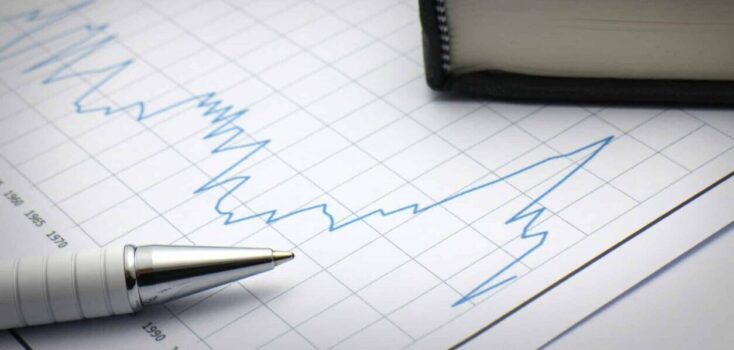
Description
Economists and economic policy researchers and analysts conduct research, monitor data, analyze information and prepare reports and plans to resolve economic and business problems and develop models to analyze, explain and forecast economic behaviour and patterns. They advise on matters such as finance, fiscal and monetary policy, international trade, agricultural and natural resource commodities and labour and industrial markets. They are employed by government departments and agencies and throughout the private sector in associations, unions, research organizations, banks and investment firms.
Job Titles
- Agricultural economist
- Economic advisor
- Economic analyst
- Economic policy analyst
- Economist
- Energy economist
- Financial economist
- Industrial economist
- International trade economist
- Investment economist
- Labour economist
- Natural resources economist
- Tax economist
- Trade economist
Main Duties
- Conduct research and develop models to analyze, explain and forecast economic behaviour and patterns, and devise methods for collection and analysis of data
- Forecast production and consumption of specific products and services based on records of past production and consumption and general economic and industry-specific conditions
- Prepare forecasts of income and expenditure, interest rates and exchange rates
- Analyze factors which determine economic growth and advise government agencies on policies to increase economic activities
- Analyze factors which determine labour force participation, employment, wages, unemployment and other labour market outcomes
- Study mathematical formulae and statistical techniques and apply them to the testing and quantifying of economic theories and the solution of economic problems
- Study the nature of money, credit and the operation of banks and other financial institutions to develop monetary policies and forecasts of financial activity
- Monitor economic data to assess the effectiveness, and advise on the appropriateness, of monetary and fiscal policies
- Examine problems related to the economic activity of individual companies
- Examine financial methods, production costs and techniques and marketing policies to recommend possible improvements
- Examine statistical data on the exchange of goods and services among nations
- Forecast production and consumption of renewable resources and supply, consumption and depletion of non-renewable resources
- Conduct research on market conditions in local, regional or national area to set sales and pricing levels for goods and services, to assess market potential and future trends and to develop business strategies
- Monitor regional and local economic trends
- Study regulatory processes and provide material in support of legal proceedings with government and other parties.
Workplaces
- Associations
- Banks
- Government departments and agencies
- Investment firms
- Research organizations
- Unions
Skills
- Digital Literacy
- Numeracy
- Critical Thinking
- Decision Making
- Evaluation
Abilities
- Mathematical Reasoning
- Numerical Ability
- Verbal Ability
- Written Comprehension
- Written Expression
Personal Attributes
- Analytical Thinking
- Active Learning
- Attention to Detail
- Independence
- Innovativeness
Similar Occupations
- Financial and investment analysts (11101)
- Government managers – economic analysis, policy development and program administration (40011)
- Business development officers and market researchers and analysts (41402)
- Labour policy analyst (in 41403.01 Social policy researchers)
Source: OaSIS
Employment Outlook
The employment outlook will be moderate for Economists and economic policy researchers and analysts (41401) in Prince Edward Island for the 2022-2024 period.
The following factors contributed to this outlook:
- Employment growth will lead to a moderate number of new positions.
- A moderate number of positions will become available due to retirements.
- There are a small number of unemployed workers with recent experience in this occupation.
Here are some key facts about Economists and economic policy researchers and analysts in Prince Edward Island:
- Approximately 50 people worked in this occupation in May 2021.
- Economists and economic policy researchers and analysts mainly work in the following sectors:
- Federal government public administration (NAICS 911): 74%
- Provincial and territorial public administration (NAICS 912): 26%
- 83% of economists and economic policy researchers and analysts work all year, while 17% work only part of the year, compared to 59% and 41% respectively among all occupations. Those who worked only part of the year did so for an average of 50 weeks compared to 41 weeks for all occupations.
- The gender distribution of people in this occupation is:
- Men: 62% compared to 51% for all occupations
- Women: 38% compared to 49% for all occupations
- The educational attainment of workers in this occupation is:
- no high school diploma: n/a
- high school diploma or equivalent: n/a
- apprenticeship or trades certificate or diploma: n/a
- college certificate or diploma or university certificate below bachelor’s: n/a
- bachelor’s degree: 62% compared to 17% for all occupations
- university certificate, degree or diploma above bachelor level: 31% compared to 8% for all occupations
Source: Job Bank
Prevailing Wages
| AREA | LOW | MEDIAN | HIGH |
|---|---|---|---|
| PEI | $28.21 | $42.34 | $62.50 |
| Canada | $30.77 | $45.00 | $67.01 |
Training
There are no known training programs for this occupation in PEI. If you are aware of a local training program, please contact us.
There are currently no job listings for this occupation on WorkPEI.
